The campaign ads below include a mix of video, social, and digital assets for caregivers (adults who care for a family member or other loved one and help guide their health care decisions) about helping their loved one get vaccinated against flu, COVID-19, and RSV. Additional TV, radio, digital, and print ads may be available upon request.
To learn more about what ads are available and how you can use them in your outreach efforts, contact us.
Video Ads
Use our campaign videos to share important information with health navigators about helping their loved one get vaccinated for flu, COVID-19, and RSV. Looking for broadcast quality videos? Contact us.
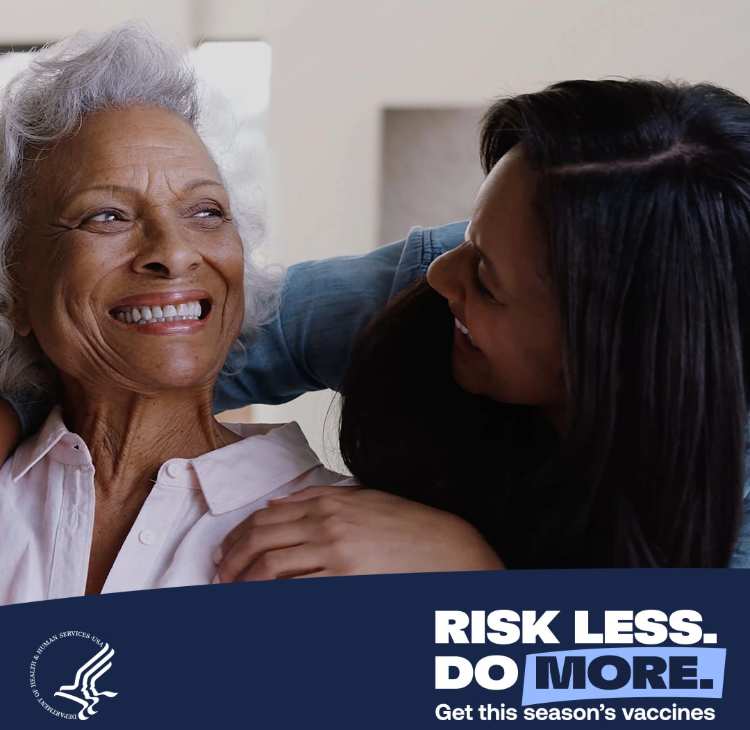
Last year, flu and COVID hospitalized nearly one million people over 65. Reduce the risk of hospitalization for your loved ones. Help them get vaccinated for flu and COVID-19.
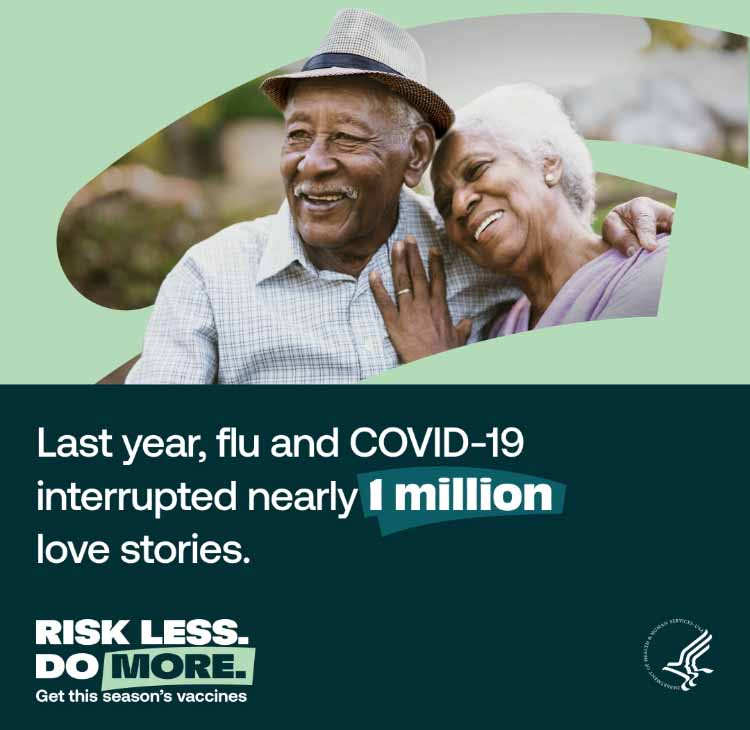
Nearly 1 million people 65 and older were hospitalized last year due to flu and COVID-19. Getting vaccinated cuts this risk in half.
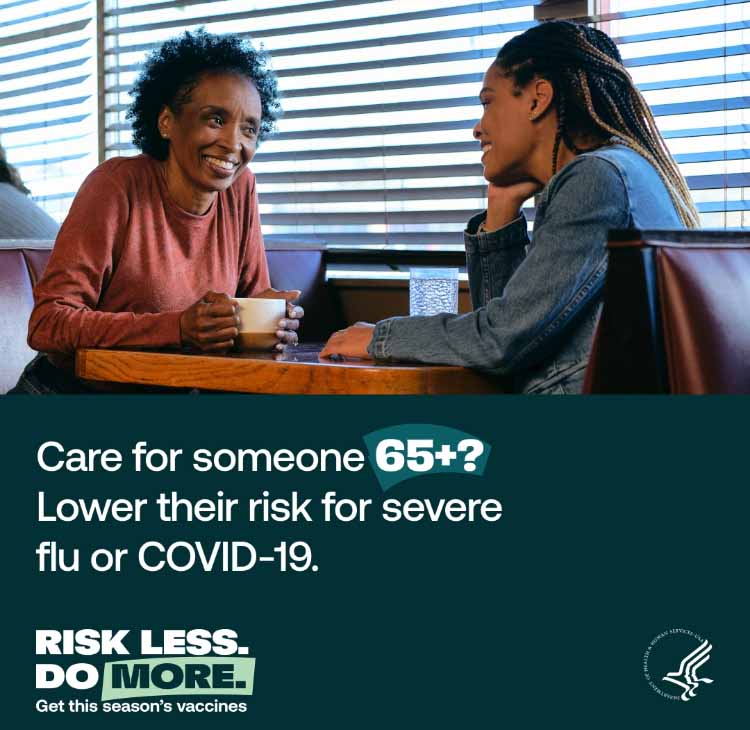
Last year alone, flu and COVID-19 hospitalized nearly 1 million moms, dads, favorite uncles, and grandmas over 65. Talk to your loved one about getting this season’s vaccines.
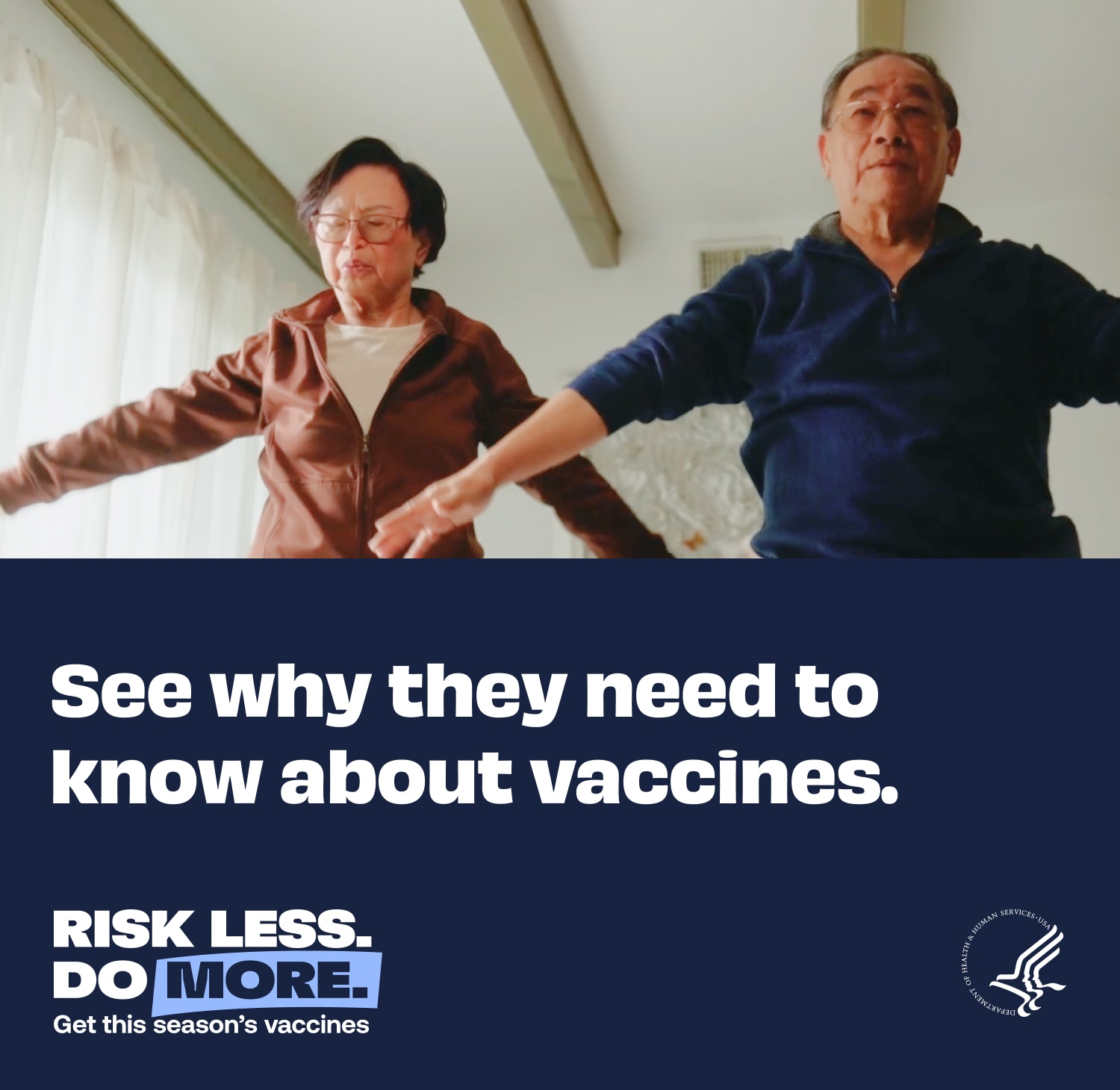
Help care for someone older? Protecting them from severe flu, COVID-19, or RSV starts with a conversation.
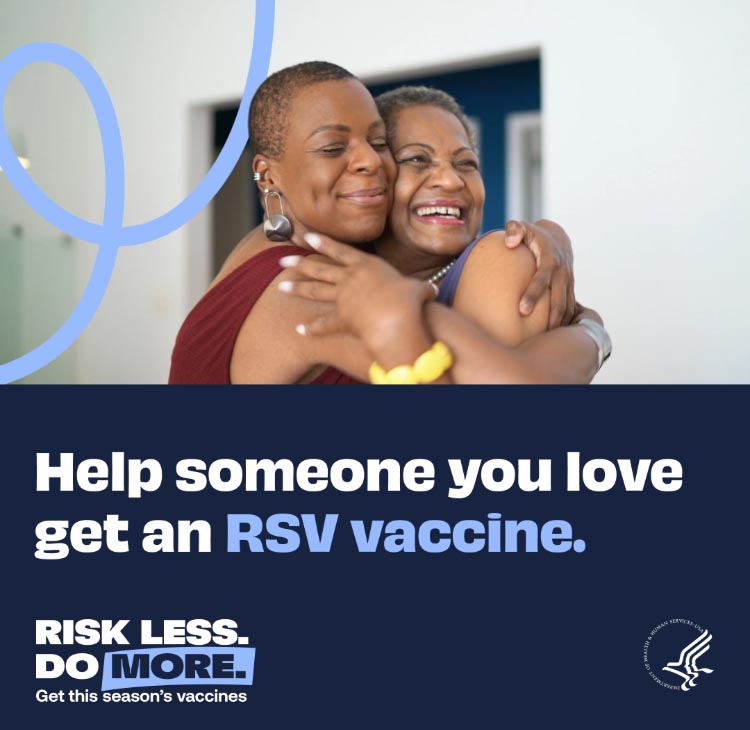
People 75 and older are at higher risk of serious illness from RSV, but vaccines help lower their risk and keep them at their very best.
Social and Digital Ads
Use our campaign social and digital ads to encourage health navigators to help their loved one get this season’s vaccines for flu, COVID-19, and RSV.
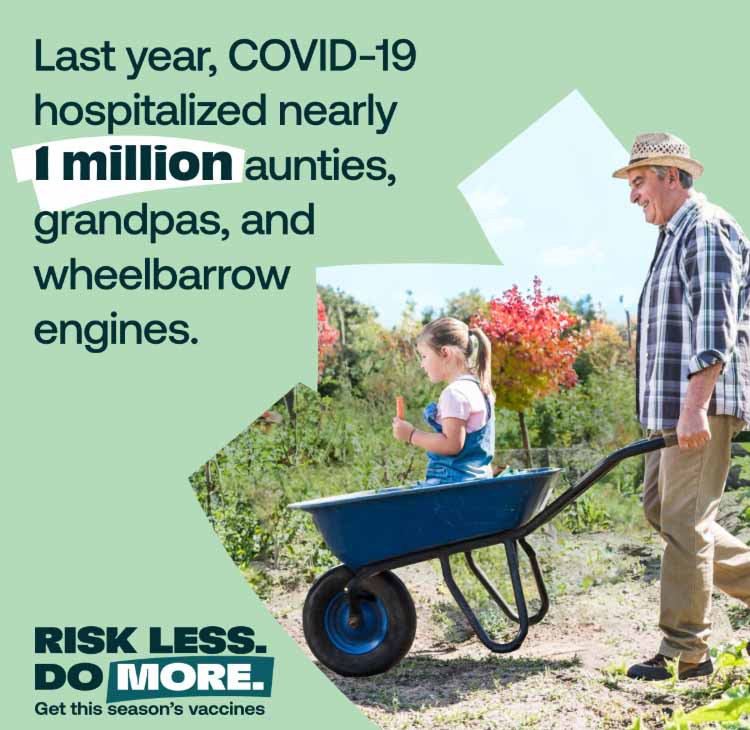
If someone you love is 65+, talk with them about vaccines and help protect your family treasures.
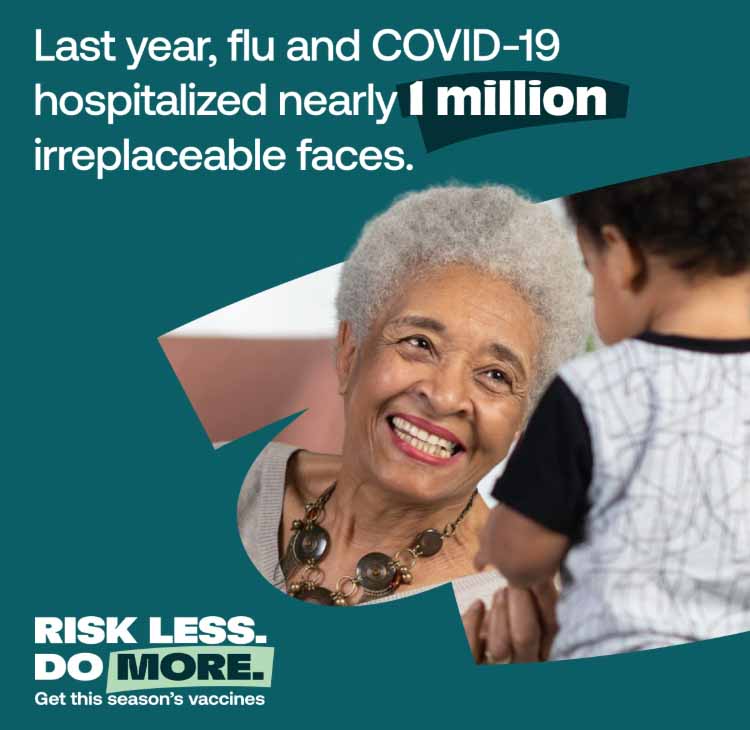
If someone you love is 65+, talk with them about vaccines that could help lower their risk.
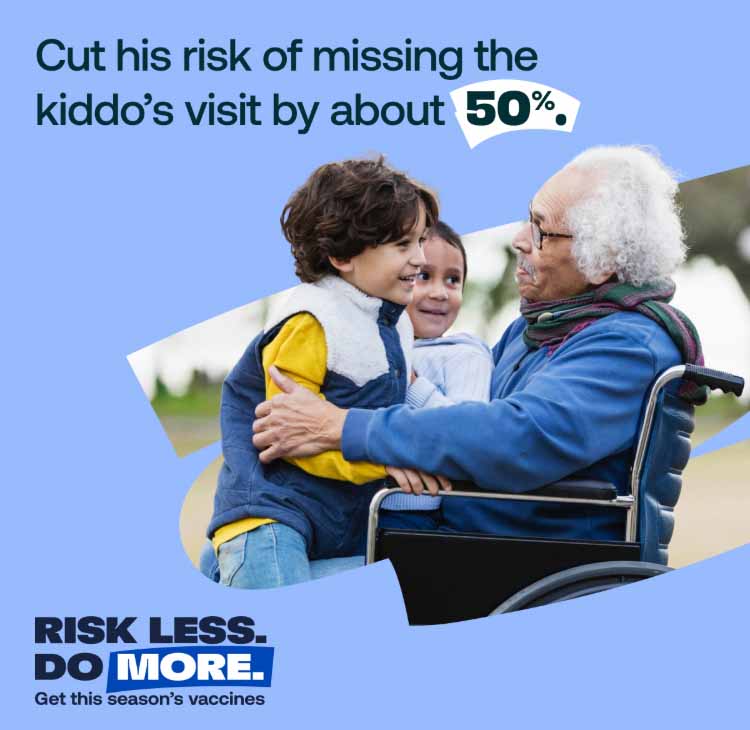
If someone you love is in long-term care, talk with them about flu, COVID-19, and RSV vaccines that could cut their risk of hospitalization by about 50%.
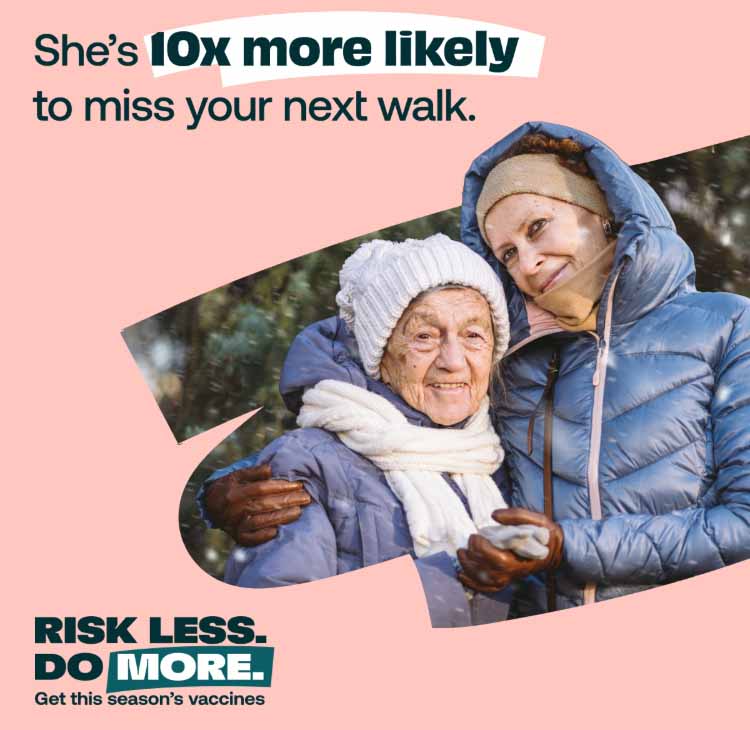
Adults 65+ are 10x more likely than people under 50 to be hospitalized by flu, COVID-19, or RSV. So talk with her about vaccines.
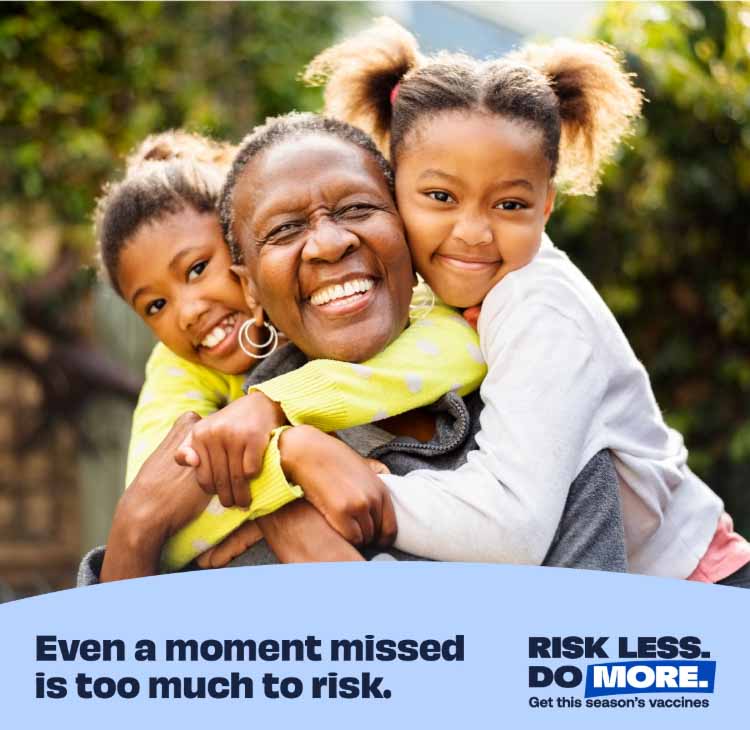
The older your loved one is, the higher their risk of severe respiratory illness. Talk with them about getting flu, COVID-19, and RSV vaccines.
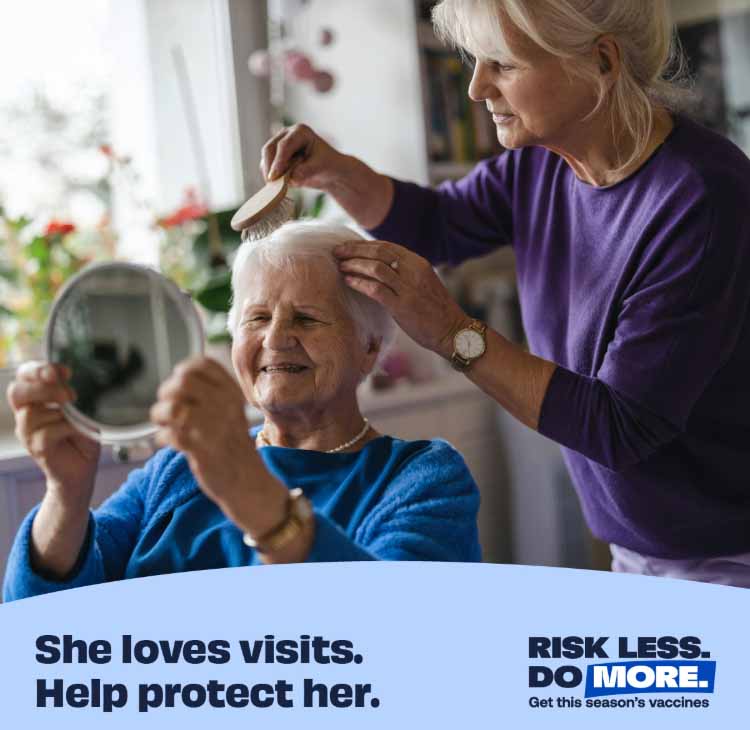
For older people living in long-term care, vaccines can reduce the risk of hospitalization for respiratory infections by nearly half. Talk with your loved one about vaccines.
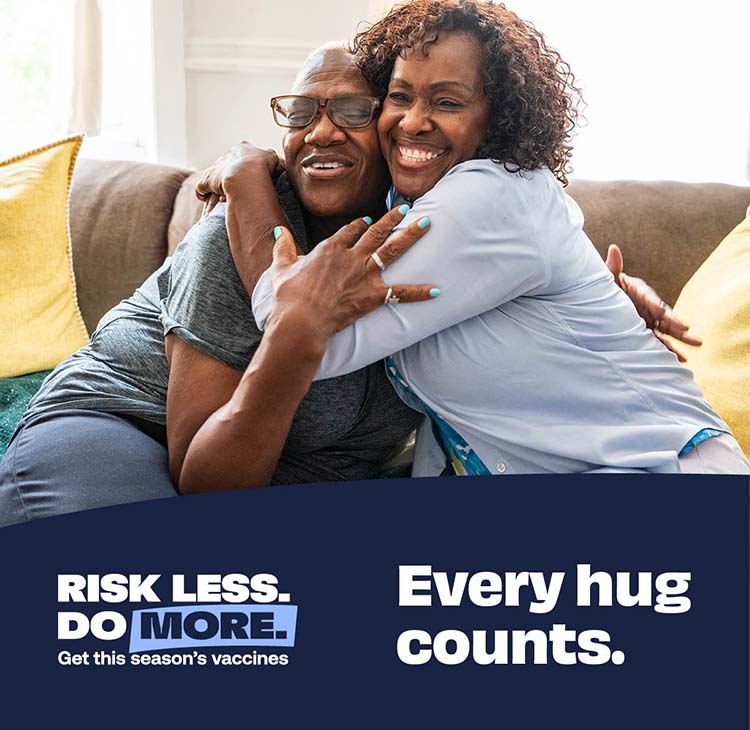
Flu, COVID-19, and RSV can lead to severe illness and hospitalization for older adults. Help them get vaccinated, and don't miss your next hug.
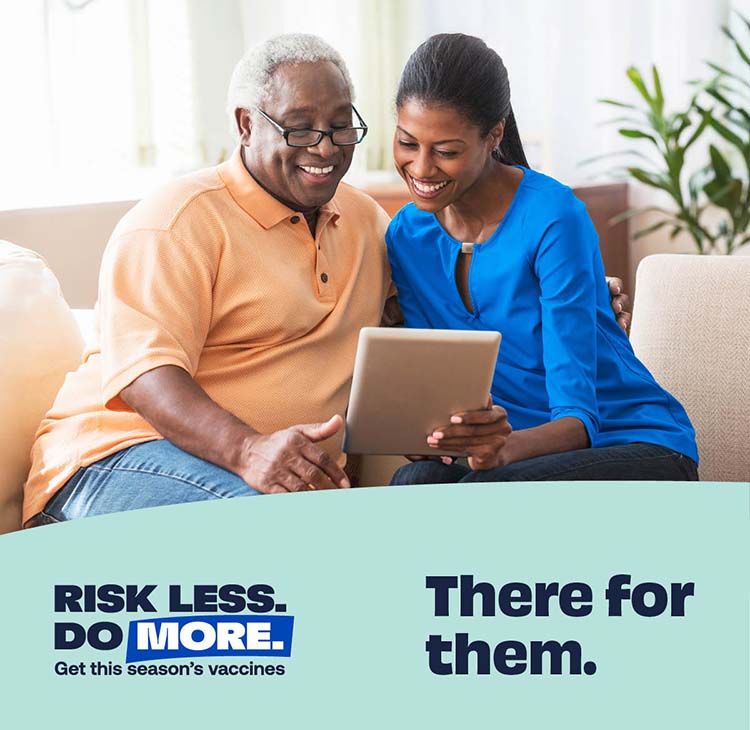
Flu and COVID-19 can lead to severe illness and hospitalization for adults ages 65 and older. Help them get vaccinated.
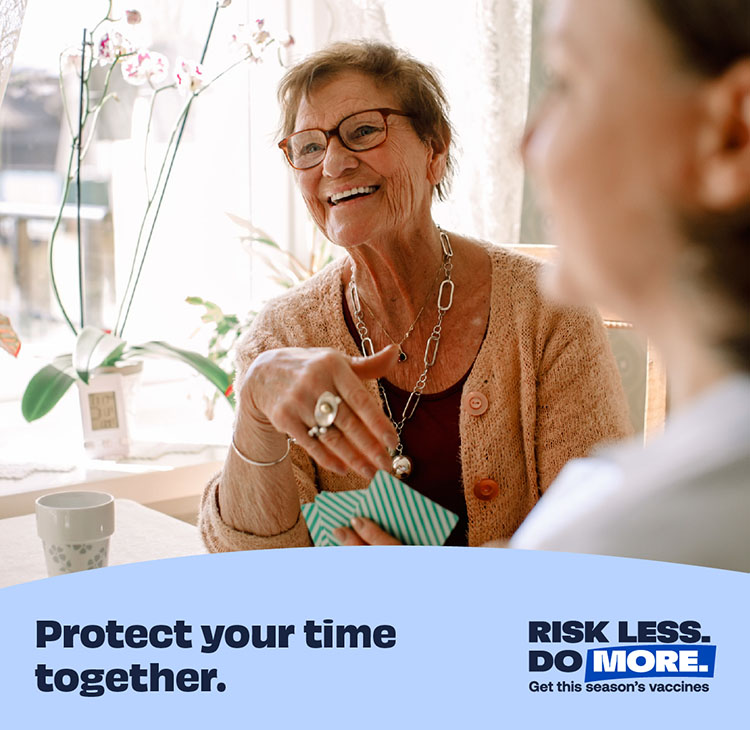
Encourage your loved one to talk to their doctor about flu and COVID-19 vaccines.
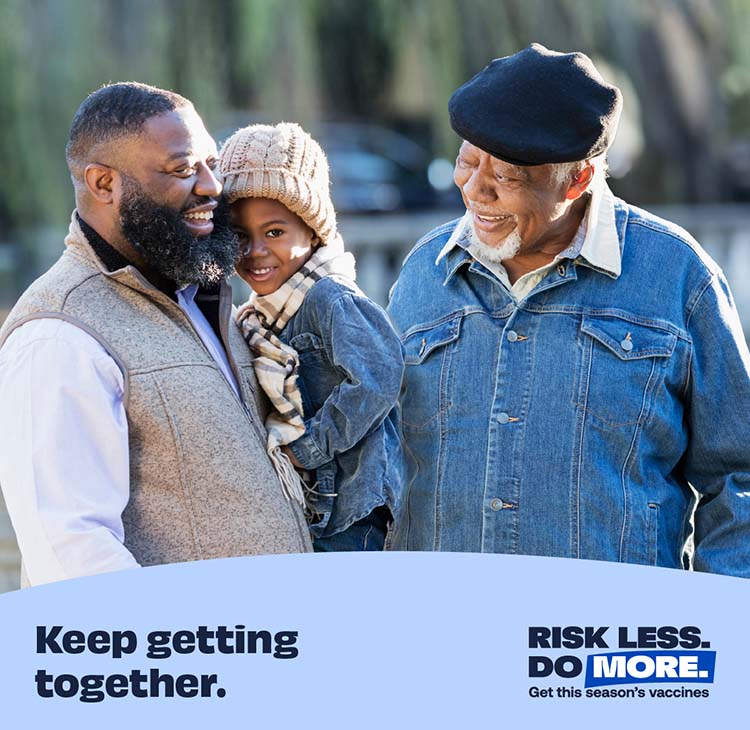
Keep your older loved ones protected by helping them get this season's flu, COVID-19, and RSV vaccines.
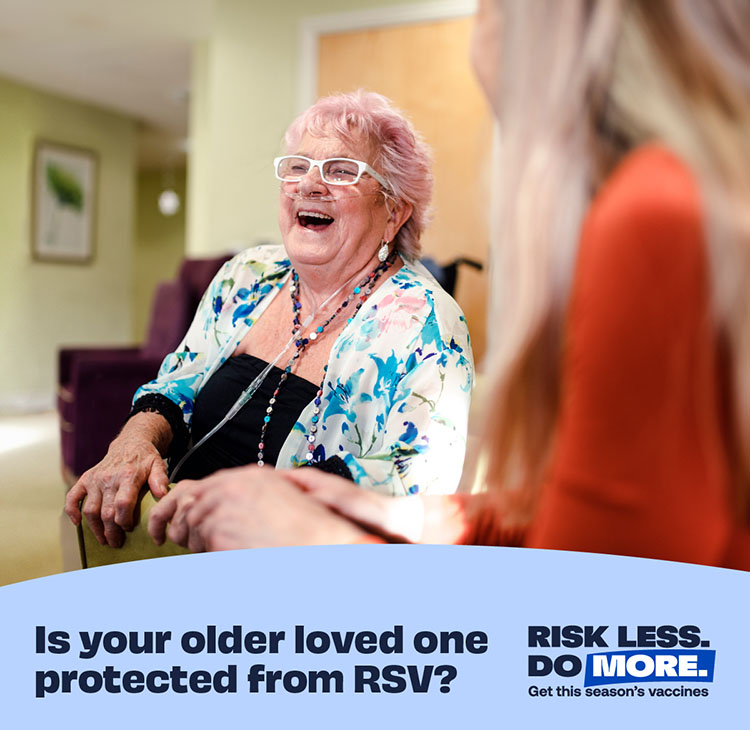
If your loved one is in a nursing home, they're at higher risk for respiratory viruses. Help them get an RSV vaccine.
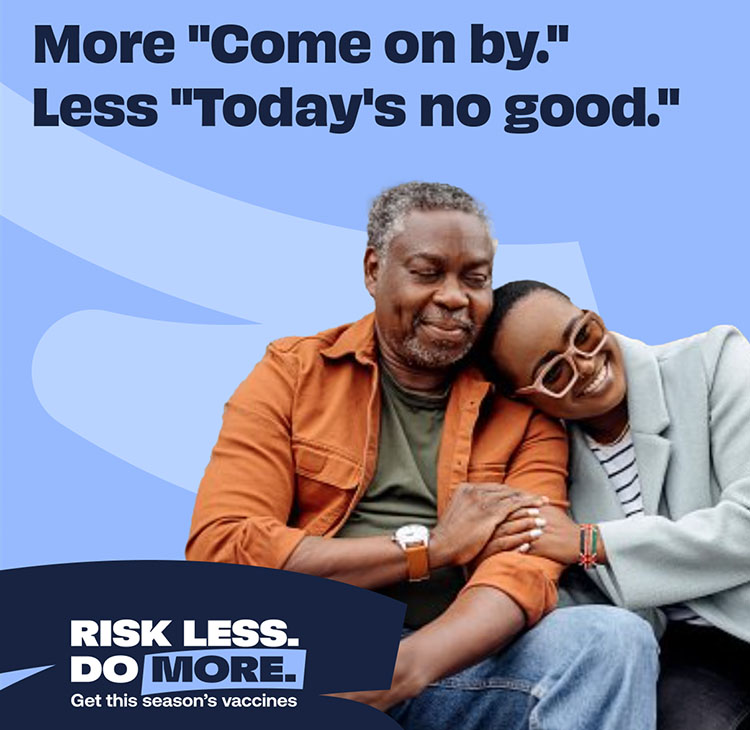
Let him know an RSV vaccine lowers the risk of serious illness for anyone 75+ or 60+ with certain health conditions.
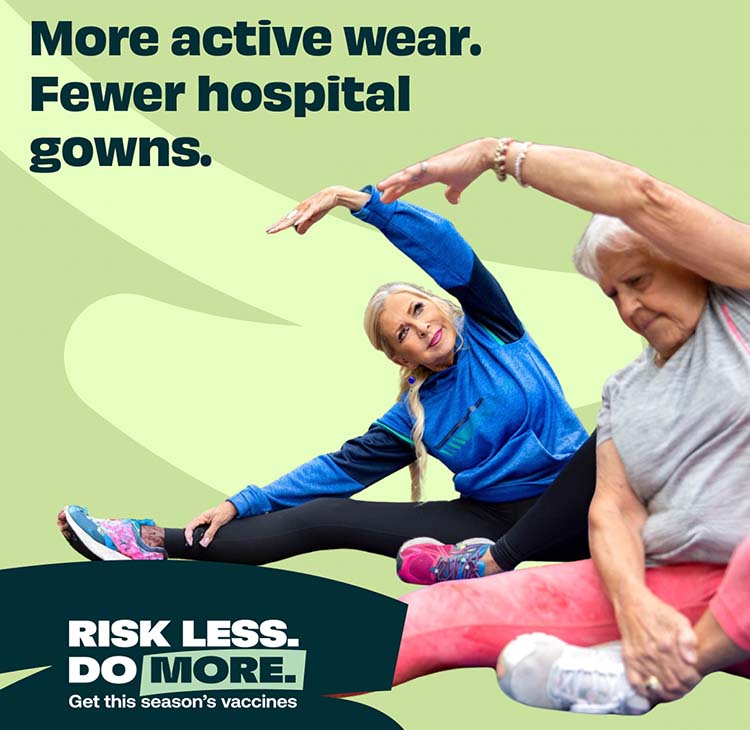
Talk with your mom about getting vaccinated for flu and COVID-19 so she can keep up with her other routines.
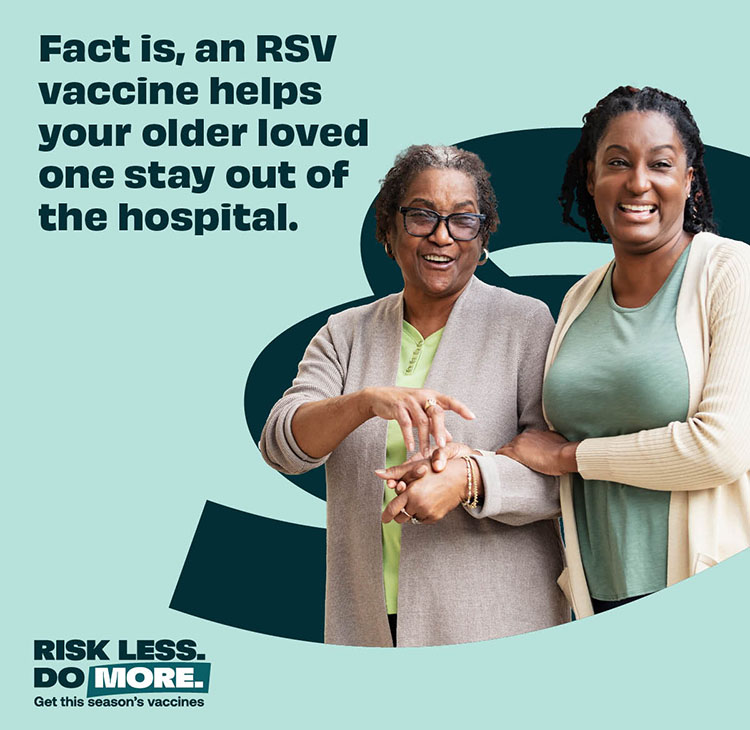
RSV can be dangerous for those 75+ and those 60+ with conditions such as obesity or diabetes. Protect someone you love—encourage them to talk to their doctor about an RSV vaccine.
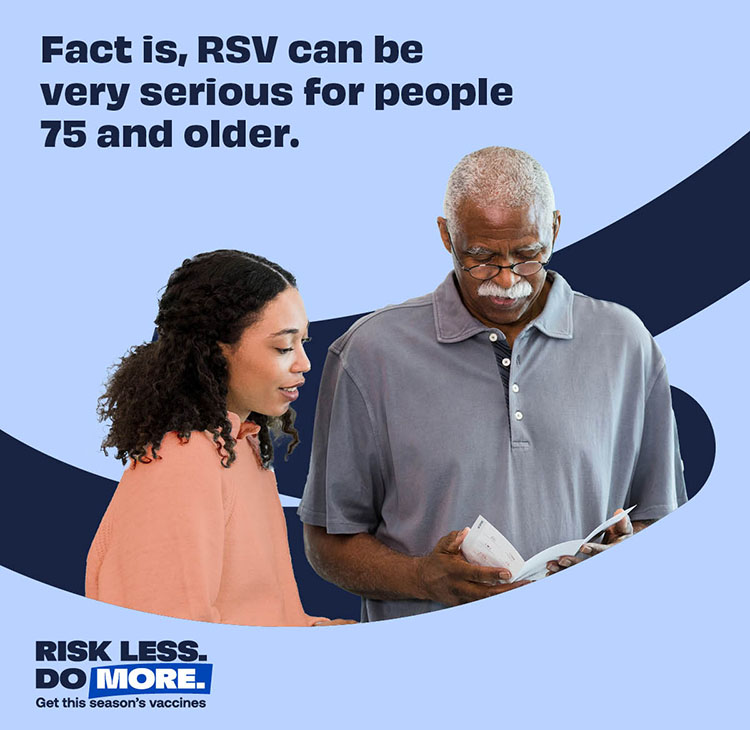
RSV can be severe for those 75 and older. Help them get an RSV vaccine and protect your time together.
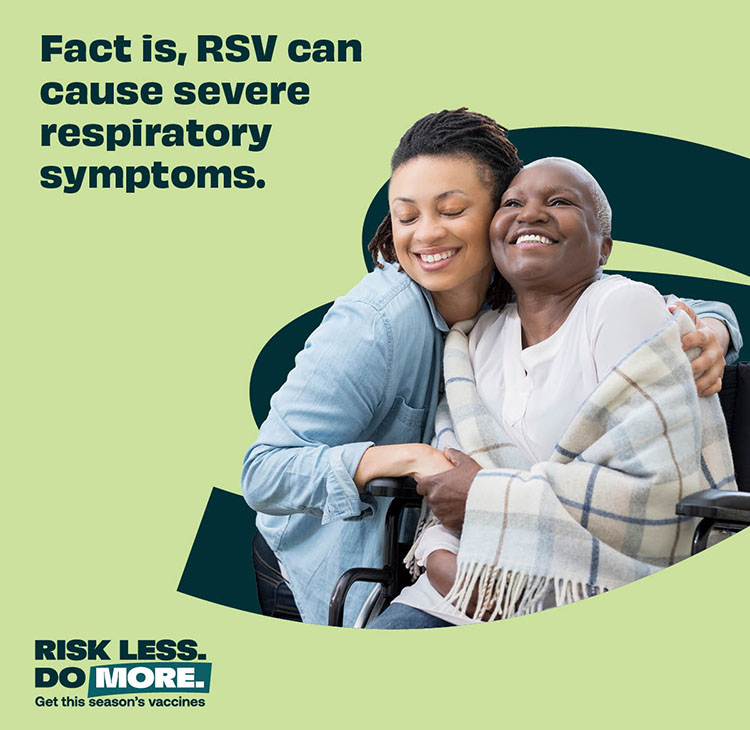
RSV can spread in long-term care homes and put residents at risk for severe illness. Help your older loved one get an RSV vaccine.
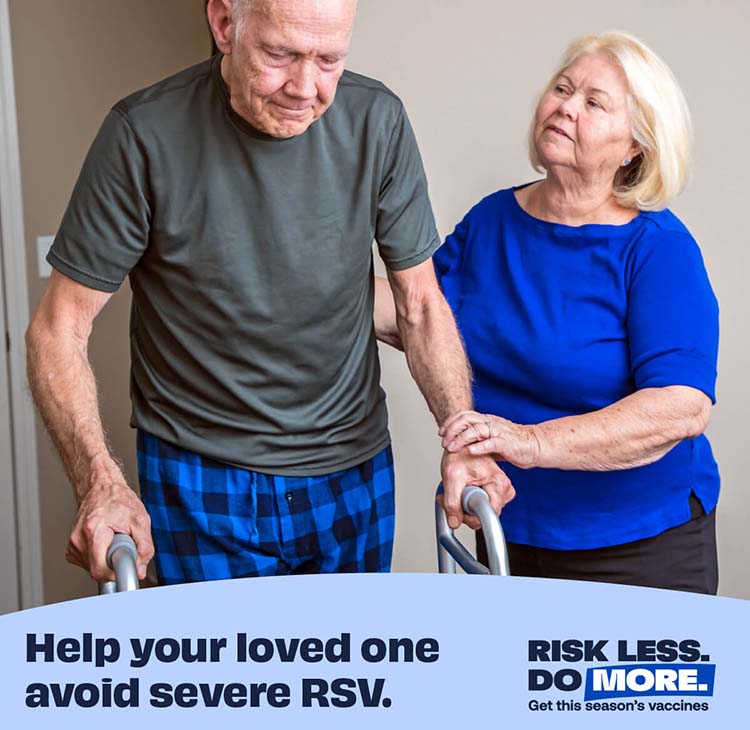
If your loved one is 75 or older, or 60 or older living in a long-term care home, help them get an RSV vaccine.
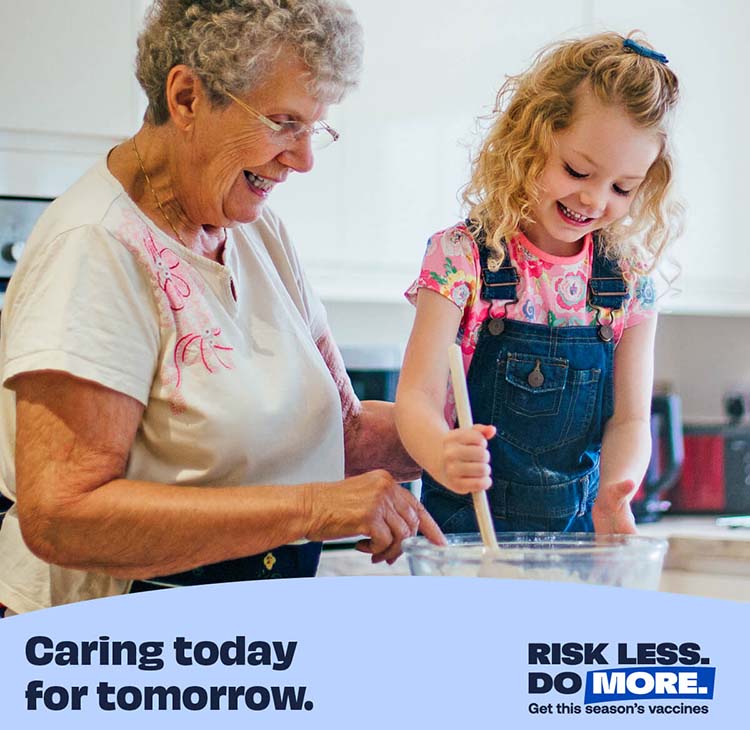
RSV is a serious respiratory disease. Your loved one 75 or older should get an RSV vaccine to reduce the risk of severe illness.
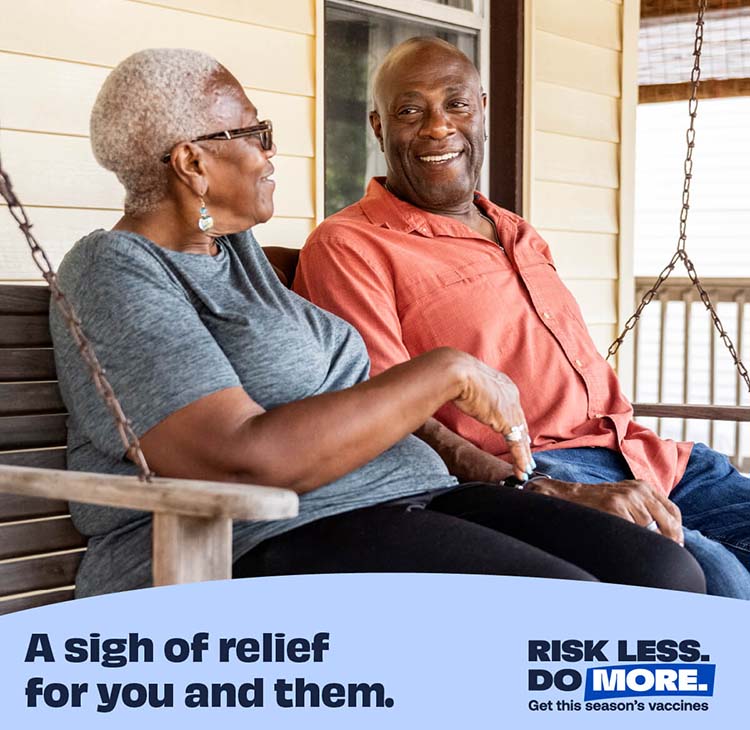
Ask your loved one 75 or older, or 60 or older with certain medical conditions, to talk to a doctor about an RSV vaccine.
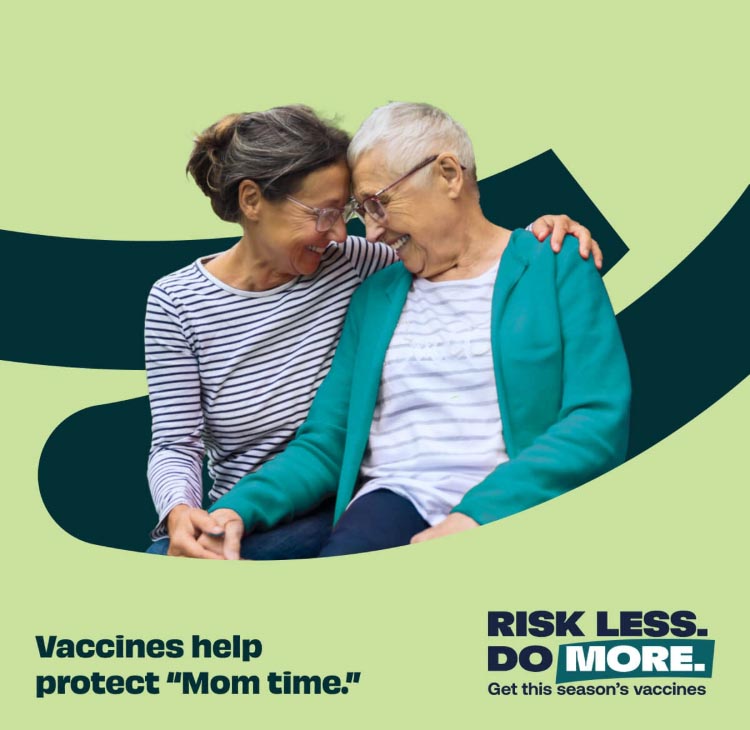
People 75 and older are at higher risk of serious illness from RSV, but vaccines help lower their risk and keep them at their very best.
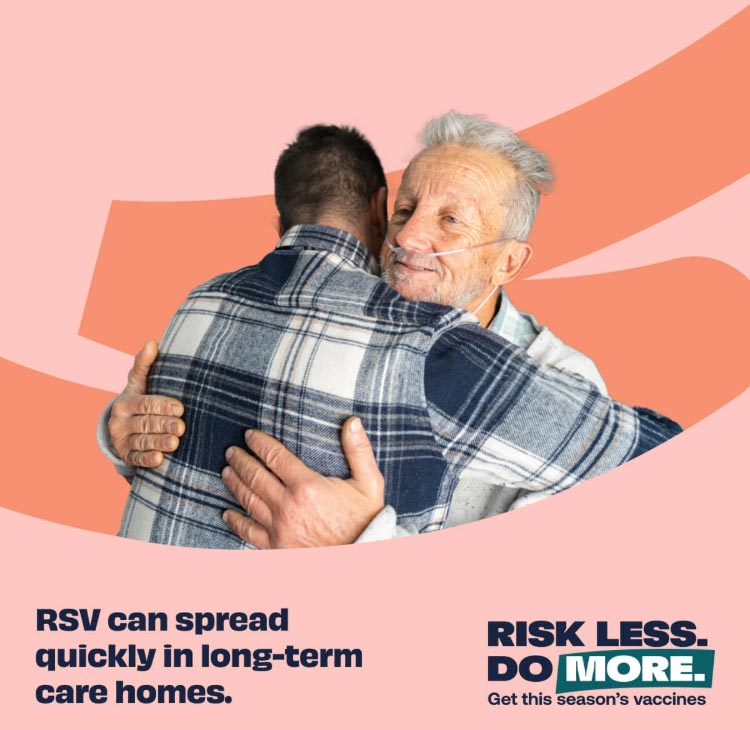
An RSV vaccine helps lower their risk of severe disease. Help keep your loved one protected long past visiting hours.
